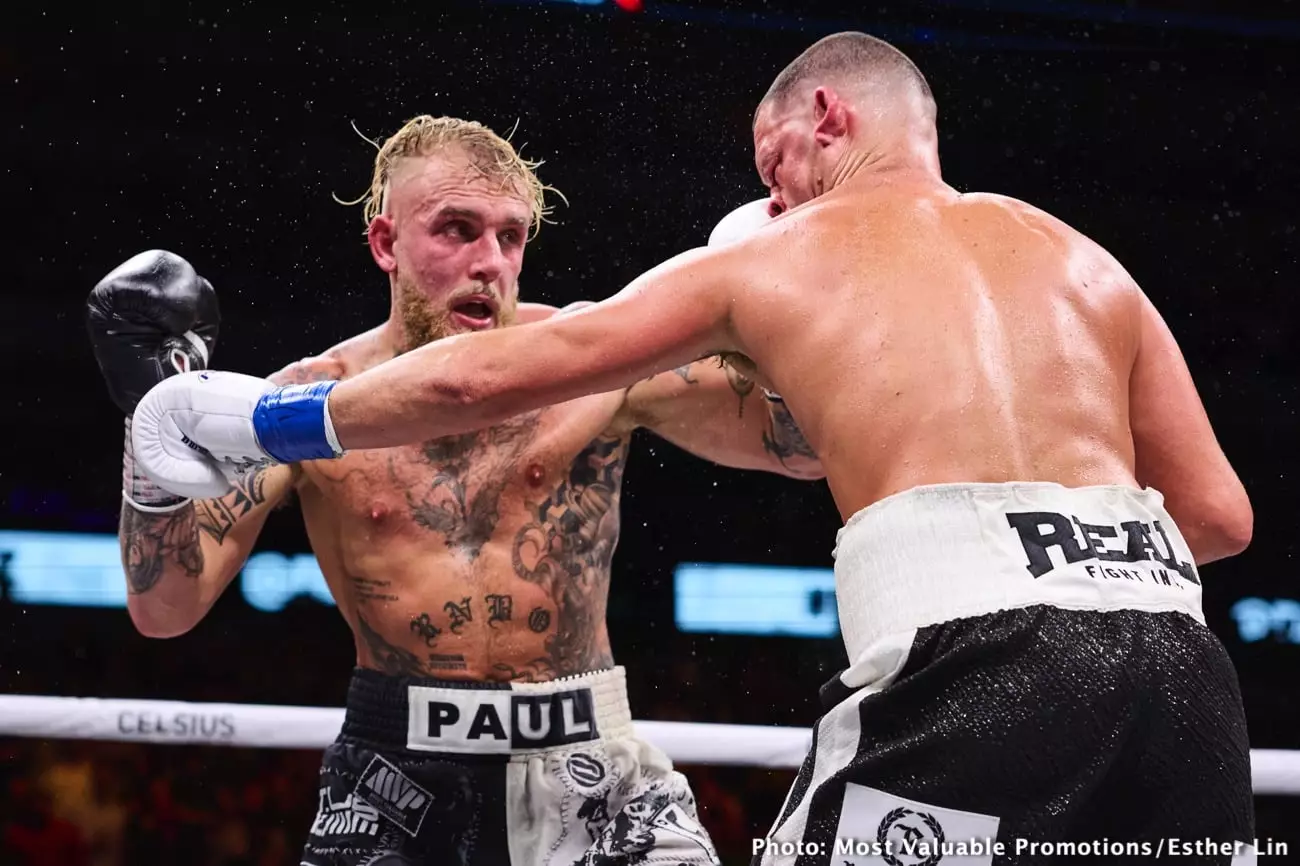The fight between YouTuber Jake Paul and former heavyweight champion Mike Tyson has sparked widespread controversy, particularly among seasoned boxing enthusiasts. Trainer Dave Coldwell’s harsh critique of this spectacle reflects a larger sentiment within the boxing community: the fight is more of a marketing gimmick than a legitimate sporting event. As the countdown to this unusual match continues, it is crucial to dissect the implications and the broader narrative behind this matchup.
Coldwell’s objections are rooted in the fundamental question of authenticity in boxing. The fact that Tyson, at 58 years old, is returning to the ring raises eyebrows. Critics argue that the age disparity and Tyson’s lengthy absence from competitive boxing tarnish the essence of what a legitimate fight should be. The bout, featuring eight rounds and 14-ounce gloves, is indicative of a matchup that lacks the intensity and credibility typically associated with boxing contests. Coldwell’s assertion that this is more akin to an exhibition than a serious competition resonates with many fans who crave the traditional grit of the sport.
This sentiment is further compounded by the two-minute rounds, which seemingly dilute the competitive spirit necessary in boxing. While this could be seen as catering to a broader audience, it also invites skepticism about the match’s integrity. Coldwell aptly points out that such factors render the fight a “not a real fight,” which not only undermines Jake Paul’s credibility as a fighter but also disrespects the sport’s legacy.
Marketing Over Merit
From a marketing perspective, it is undeniable that Jake Paul has engineered a publicity frenzy around this fight. He has transformed his YouTube fame into a profitable boxing career, drawing significant attention to events that, under different circumstances, might not have garnered such interest. The $20 million purse offered to Tyson represents a lucrative opportunity for an athlete who, at his age, would struggle to earn that amount in a more traditional bout. However, this leads to an ethical quandary: does the commodification of boxing, wherein profit supersedes authenticity, detract from the sport’s heritage? Coldwell, echoing the thoughts of many, highlights that the allure of such fights can mislead younger audiences into believing this reflects genuine boxing prowess.
The endorsement of platforms like Netflix in streaming this clash adds another layer to the ongoing debate. While this move undoubtedly broadens the fight’s audience, it risks conflating entertainment with sport. Jake Paul’s trajectory exemplifies a trend where social media influence dwarfs traditional athlete development and reveals a generational divide in how boxing is perceived and consumed.
As this spectacle approaches, the broader implications for boxing’s future loom large. If such mismatches become commonplace, are we witnessing the gradual erosion of the sport’s foundational values? Coldwell argues for a return to authenticity, urging Paul to engage with real boxers instead of targeting aging or inexperienced opponents. For boxing purists, this plea highlights the necessity of preserving the sport’s integrity against a backdrop of diminishing rigorous competition.
Moreover, the potential for a fight between Paul and renowned champions like Canelo Alvarez raises further questions. Canelo’s astronomical earnings suggest he wouldn’t entertain a fight with Paul unless the monetary stakes were exceedingly high. Yet, this creates a paradox: as boxing becomes increasingly commercialized, the allure of big paydays may compromise the sport’s competitive nature. Would the prospect of such matchups ultimately benefit boxing, or would they further alienate traditional fans?
An Ethical Dilemma
The upcoming bout between Jake Paul and Mike Tyson epitomizes the tension between entertainment and authenticity in modern boxing. While the financial aspects cannot be overlooked, they must not overshadow the principles that have long defined the sport. The prevailing sentiment among trainers like Dave Coldwell resonates with an urgent call to prioritize legacy over profit, ensuring that future generations of boxing fans receive a product built on merit, skill, and respect for the sport’s rich history. As the fight draws near, fans will watch closely, not only for the outcome but for what this event portends for the future of boxing itself.


Leave a Reply